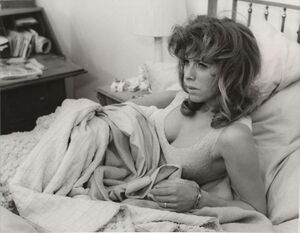Charlie Bubbles: Difference between revisions
No edit summary |
|||
| Line 3: | Line 3: | ||
==Relevance== | ==Relevance== | ||
A still of [[Billie Whitelaw]] from this film was used for the cover of [[William,_It_Was_Really_Nothing]] (Vinyl repress). | A still of [[Billie Whitelaw]] from this film was used for the cover of [[William,_It_Was_Really_Nothing]] (Vinyl repress). | ||
Upon the death of [[Albert Finney]], Morrissey stated via [https://www.morrisseycentral.com/messagesfrommorrissey/albert-finney Morrissey Central] (February, 2019):<br> | |||
<blockquote> | |||
" … he dies, a part of me dies … his refusal to accept a Knighthood - that moronic delusion of inclusion - elevates him further in the Arts and humanities. Albert was Manchester. | |||
Please watch Charlie Bubbles. … … there must be something I can dream tonight … " | |||
</blockquote> | |||
{{Page | {{Page | ||
|WikipediaPageTitle=Charlie_Bubbles | |WikipediaPageTitle=Charlie_Bubbles | ||
Revision as of 05:03, 9 February 2022
Relevance
A still of Billie Whitelaw from this film was used for the cover of William,_It_Was_Really_Nothing (Vinyl repress).
Upon the death of Albert Finney, Morrissey stated via Morrissey Central (February, 2019):
" … he dies, a part of me dies … his refusal to accept a Knighthood - that moronic delusion of inclusion - elevates him further in the Arts and humanities. Albert was Manchester. Please watch Charlie Bubbles. … … there must be something I can dream tonight … "
Mentioned In
- Albert Finney
- William, It Was Really Nothing (single)
- Sound And Vision - Movieline (1993)
- ALBERT FINNEY - Morrissey Central (February 8, 2019)
Wikipedia Information
 |
Charlie Bubbles is a 1968 British comedy-drama film directed by Albert Finney (in his feature directorial debut) and starring Finney, Billie Whitelaw and Liza Minnelli. The screenplay was by Shelagh Delaney. A writer returns to his home city after achieving success in London.
